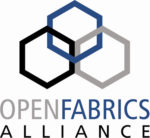In this interview, we hear from two leaders of Women in HPC, the worldwide organization that encourages, mentors and supports women and addresses gender issues in the high performance computing industry. Speaking for the organization are Lorna Rivera, research scientist in program evaluation at the Georgia Tech Center for Education Integrating Science, Mathematics and Computing […]
SC20 Announces Record Number of Teams for Annual Student Cluster Competition
This year’s Student Cluster Competition at SC20 will include two firsts: it will involve the most number of teams (19) in the competition’s 14-year history, and it will for the first time be held completely virtually. “This year’s Student Cluster Competition will be very different, as it will be 100 percent cloud-based,” explained SC20 SCC […]
NCSA’S Donna J. Cox Wins IPS Technology Innovation Award
Donna J. Cox, director of NCSA’s Advanced Visualization Laboratory (AVL), was recently awarded the International Planetarium Society’s 2020 Technology Innovation Award. This is just the eighth time since the society’s founding in 1958 that this honor has been bestowed. It is only awarded when a recipient is identified as meeting the award criteria: an individual with “a broad, deep […]
1st Student Cluster Competition Focusing on Racial Inclusion Slated for January
The inaugural Winter Classic Invitational Student Cluster Competition to include historically black and minority universities in the supercomputing challenge arena is slated for Jan. 25, 2021. To date, participating colleges include Prairie View A&M University, Fayetteville State University and Tennessee State University. With the support of top technology sponsors, Student Cluster Competitions train students to […]
2020 OpenFabrics Alliance Workshop – Video Gallery
Welcome to the 2020 OpenFabrics Workshop video gallery. The OpenFabrics Alliance (OFA) is focused on accelerating development of high performance fabrics. The annual OFA Workshop, held in virtual format this year, is a premier means of fostering collaboration among those who develop fabrics, deploy fabrics, and create applications that rely on fabrics. It is the […]
NCSA’s Upcoming $10M Delta System to Expand Use of GPUs in Scientific Workloads
Delta, a new supercomputer to be deployed before the end of 2021 at the National Center for Supercomputing Application’s (NCSA), has as part of its mission the expanded adoption of GPU-accelerated scientific computing. NCSA Director Bill Gropp told us that that while NCSA is not new to GPUs (some years ago, staffers there configured a […]
Altair offers free training tools and software licensing in response to COVID-19
Over at the Altair Blog, CEO James Scapa writes that the company is offering free training tools and software licensing in response to COVID-19. “Altair can provide temporary software licenses for clients working from home without access to their enterprise Altair software solutions with no additional fees or charges. If customers wish to move their HyperWorks Units from on-premises to Altair hosted servers or require temporary software licenses, they should contact their account representative.”
Video: Next Generation AMD CPU and Accelerator Technologies
Bradley McCredie from AMD gave this talk at the Rice Oil & Gas Conference. “While foundries bravely drive forward to overcome the technical and economic challenges posed by scaling to 5nm and beyond, Moore’s law alone can provide only a fraction of the performance / watt and performance / dollar gains needed to satisfy the demands of today’s high performance computing and artificial intelligence applications. To close the gap, multiple strategies are required. First, new levels of innovation and design efficiency will supplement technology gains to continue to deliver meaningful improvements in SoC performance. Second, heterogenous compute architectures will create x-factor increases of performance efficiency for the most critical applications.”
How We Can Achieve Applied Science Innovation Through Big Compute?
Joris Poort from Rescale gave this talk at the Big Compute 2020 conference. “Now the challenge of big compute comes down to three major areas. The first is specialized hardware. Because of the nature of these problems, we have to be able to leverage the specialized nature of the hardware advances that we have to be able to solve these tightly coupled problems. The second is need to think differently about how we actually compute in the stack, how we align the algorithm to the infrastructure. And finally the third, perhaps the most important, we have to make this usable and democratize this capability to the world’s brightest minds and innovators.”












